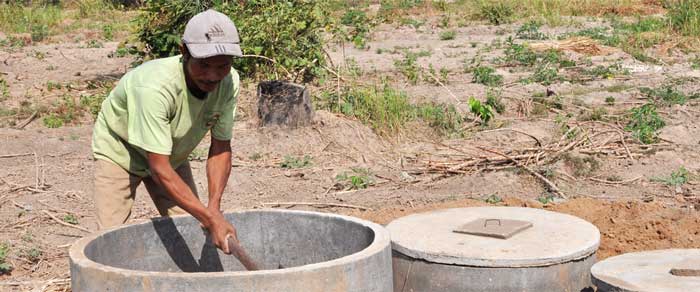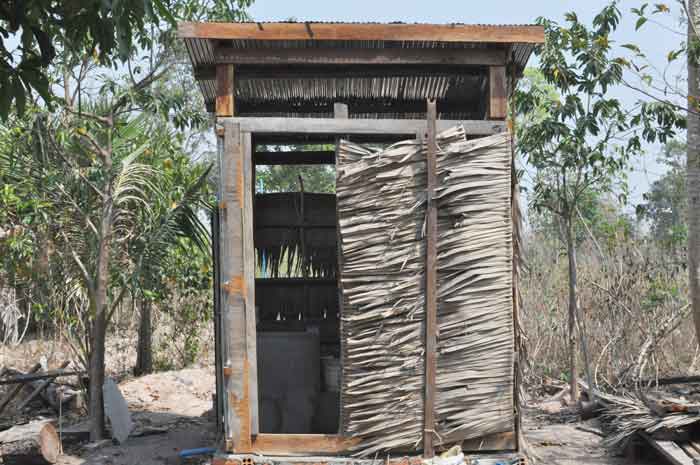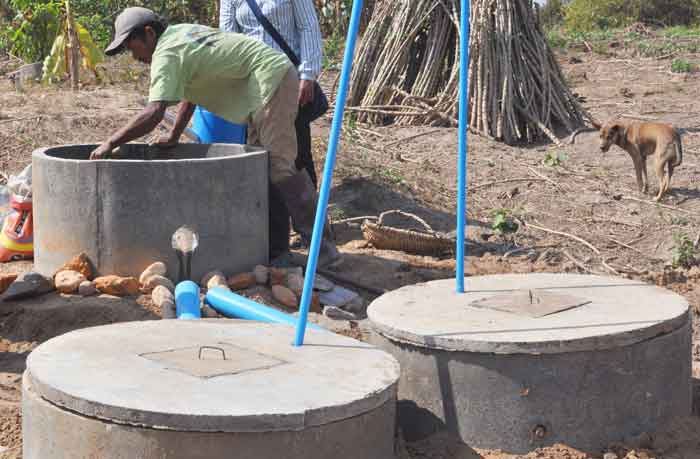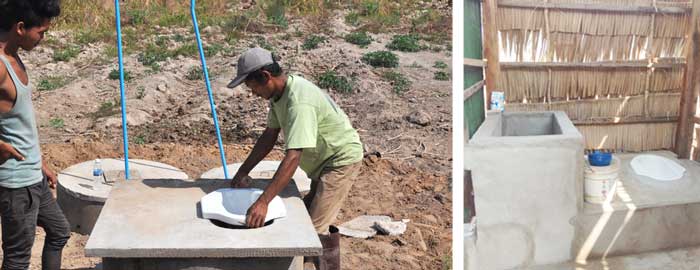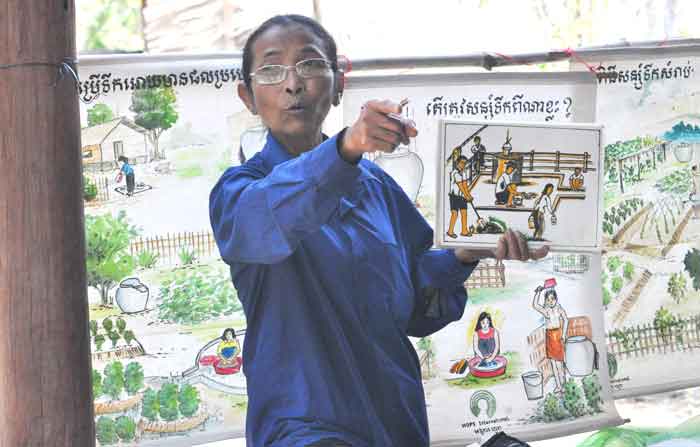Toilets Change Lives Too!
Currently, "2.4 billion people still do not have access to basic sanitation facilities such as toilets or latrines" (World Health Organisation 2016). This is nearly a third of the world's population.
In communities where basic sanitation facilities are not available, the introduction of latrines can be transformative. They immediately improve sanitation practices and reduce the spread of diseases. Enclosed latrines also offer privacy and more security, particularly for women. This is why compost latrines are an important part of HOPE's Water, Sanitation and Hygiene programs in Cambodia.
With every well that is installed, a compost latrine is also installed. Designed to be simple but effective, pipes connect the latrine to storage pots at the rear, where waste is treated for 6 months until it is ready to be used as fertilizer in the fields.
Correctly aligning the pipes can be difficult, and this is where a trained technician's expertise is required. HOPE Cambodia's well and latrine technicians help families install their wells and latrines. Coming from communities that previously benefited from HOPE's program themselves, the locally trained technicians understand the hardships of living without clean water and latrines all too well.
HOPE Cambodia staff continue to pay families regular visits to families post installation. Sharing vital information on health and sanitation, maintenance of the wells and latrines, HOPE staff also give families advice home vegetable gardening and the usage of compost. Because of the journey shared and relationships built, many families remain friends of HOPE, even after they’ve reached self-reliance, and some men join us as well and latrine technicians.

